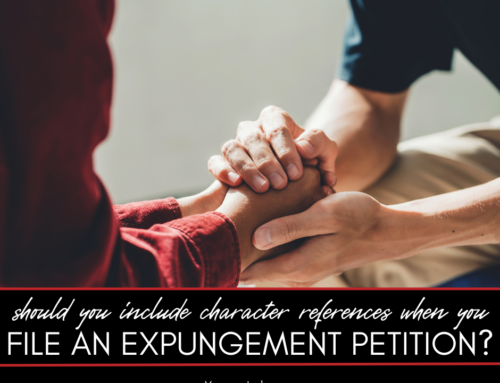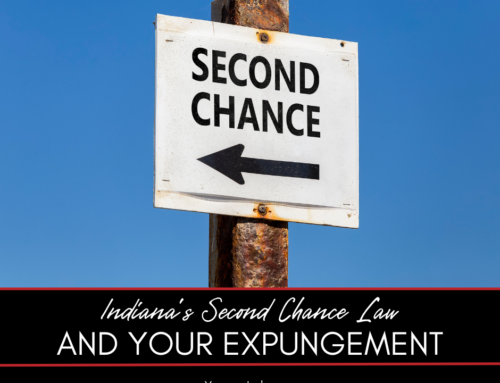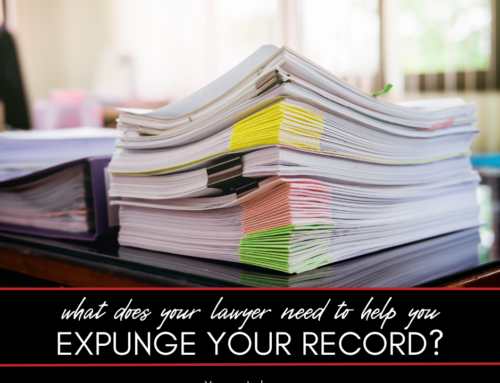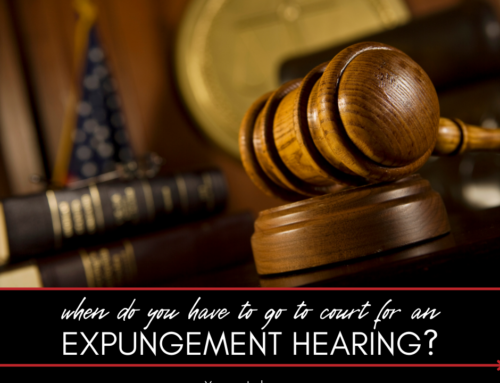
If you’re like many people, you know that the state of Indiana allows you to expunge certain criminal convictions – but can you expunge everything, or just some things? This guide covers what you can (and can’t) clear from your criminal record in Indiana.
What Criminal Convictions Can You Expunge in Indiana?
The process of expungement gives you a fresh start. By enabling you to make some offenses private and have others marked “expunged,” it lets you move forward without anyone discriminating against you because you have a criminal record. (In fact, it’s unlawful for anyone to discriminate against you for having expunged records – but more on that in the later section, “Discrimination Protection With Expungement.”)
But not all offenses can be expunged. Some crimes have to stay on your record forever, while others must remain on your record for a certain period of time before you can ask a judge to clear them.
Related: All about background checks
All the Records You Can Expunge in Indiana
Though some crimes must remain on your criminal record forever, Indiana law allows you to – for the most part – expunge:
- Arrests
- Civil forfeitures
- Criminal charges
- Criminal convictions
- Juvenile delinquency adjudications
- Post-conviction proceedings
There are two ways your records can be expunged. The first, reserved for lower-level offenses, arrests and other less-serious issues, is through sealing. When a record is sealed, most people can’t access it; that means a nosy neighbor or a prospective employer running a background check won’t be able to get the details on your criminal history. It’s important to note that law enforcement officials, people who run fingerprint-based background checks and those working within the court system in an official capacity will still be able to see your record. In most cases, someone outside the legal system needs a court order to be able to see your sealed records.
The second way a record can be expunged is by keeping it a matter of public record but marking it “Expunged.” This often happens with more serious offenses. When a record is marked “Expunged,” it signals that it’s not really a part of your record – and that nobody can hold it against you.
Related: Can you expunge a Level 6 felony in Indiana?
Non-Conviction Records
When you weren’t actually convicted of a crime – such as when you were arrested and released, when charges were brought against you but dropped, or tried and found not guilty – you have a non-conviction record. Juvenile delinquency adjudications also count as non-conviction records, and so do instances in which you were convicted of a crime but the conviction was later vacated.
You may expunge non-conviction records if you wait at least one year from the date of your arrest, charge, juvenile delinquency adjudication, or vacated conviction, as long as you:
- Don’t have any pending criminal charges
- Aren’t participating in a pretrial diversion program
Related: Expungement and sealing FAQ
Conviction Records
If you were convicted of a crime, you may be eligible for expungement or criminal record sealing. If you were convicted of a misdemeanor or a lower-level felony (specifically, a Level 6 felony or Class D felony) reduced to a misdemeanor if it’s been at least five years from your conviction and you meet the following criteria:
- You haven’t been convicted of any crimes in the past five years
- You have no pending criminal charges
- You’re caught up on fines, fees, court costs and restitution you owed as the result of your case
- You’ve paid the filing fee for your expungement
- You weren’t convicted of two or more felonies involving a deadly weapon (unless the convictions stemmed from the same criminal incident)
Records You Cannot Expunge in Indiana
The following offenses must stay on your criminal record – you can’t expunge them:
- Homicide, voluntary manslaughter or involuntary manslaughter
- Two or more offenses involving use of a deadly weapon, provided the offenses stemmed from different incidents
- Sex crimes or violent crimes as outlined in Indiana Code § 11-8-8-5
- Official misconduct as outlined in Indiana Code § 35-44.1-1-1
If you have any of these types of convictions on your record, you should speak to an Indiana expungement attorney. Your attorney may be able to help you find a way to move forward. Though there’s never any way to predict the outcome of a case, an attorney may be able to determine whether there’s a path forward for you.
Discrimination Protection With Expungement
When your criminal record is expunged, it’s unlawful for someone to discriminate against you by refusing to hire you, suspending you or expelling you, or refuse to grant you a license or renew your existing license. (That goes for permits and certifications that are required for activities, jobs or professions, too.)
When your record is expunged, employers, landlords, school administrators, creditors and others are supposed to treat you as if you never had a scrape with the law.
Do You Need to Talk to an Indiana Expungement and Sealing Attorney?
If you’re ready for a fresh start, we may be able to help. Call us at 317-647-5476 or fill out the form below for a free consultation on expungement. We’re here to answer your questions and get you the fresh start you deserve.













